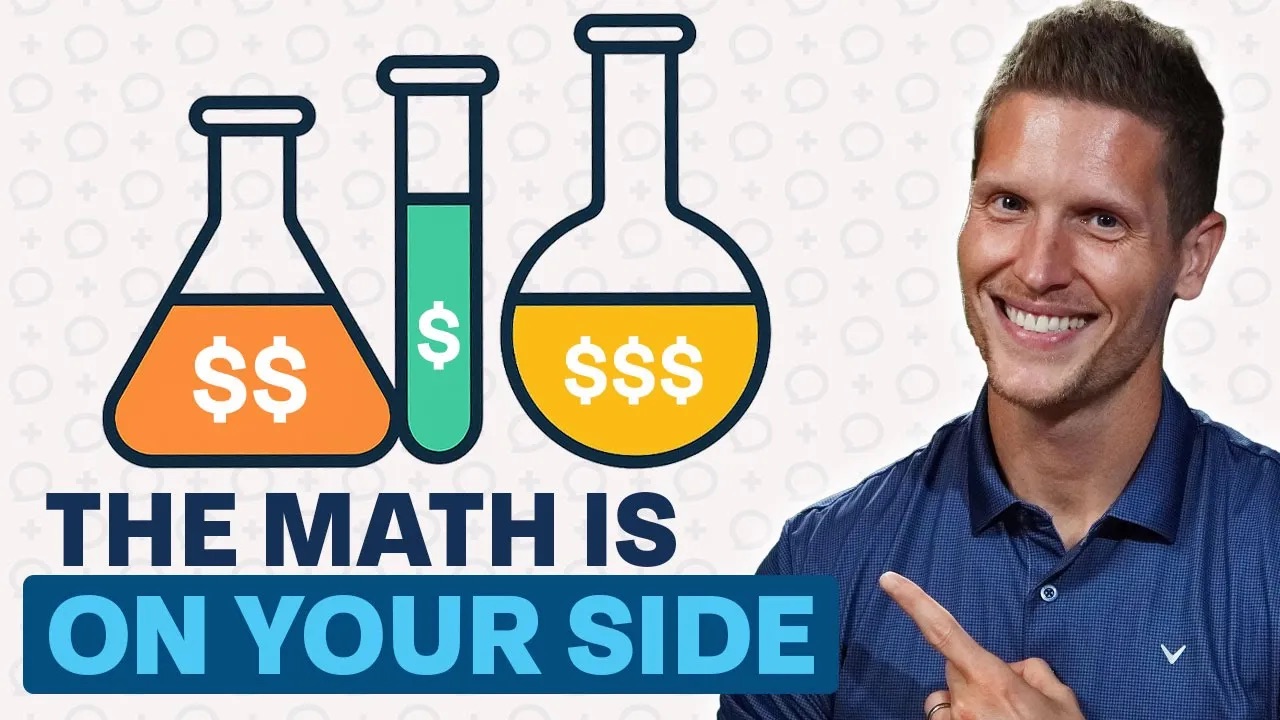Okay, a question from E. Littles is up next. It says, "What is the best path I can take to become a financial advisor? Is this an occupation you would suggest for someone who likes to help others with money?" And then he asks, "Is college necessary? What does it actually take?"
Firstly, I love doing this for a living. There's nothing else in the world I'd rather do. I think it's so fun – you get to do math, you get to work with money, work with dollars, and you get to help people. Those three things are pretty much what gets me super, super juiced. So, I love being a financial advisor. I love this vocation. I would encourage anyone who thinks they might have an affinity for it to definitely pursue it.
Now, what's required to do it and do it well kind of varies a bit because it depends on what you really want to do, which side of the business you want to go into, and where you want to position yourself. You can go work and be a financial advisor, or you can work to support a financial advisory firm, or you can go out and be a product salesman. Each of these has its merits, and it depends on what you ultimately want to do. If you were going to tell somebody, "Hey Brian, I'm thinking about entering the industry. I'm thinking about doing this. What are some of the first things you would tell them to do? What are some of the first things you would tell them to think about?"
Well, man, there's a lot there because the world of finance is wonderful, and it's a great career. But, I think there are several ways to get there. You can do financial planning degrees. I think you can come from an accounting background – I got my own degree and focused on accounting because I believe accounting is the language of business, so it's valuable. But, for someone in another career, and we have a lot of career changers that come our way too. Here's what I would advise: First, do your research on the industry as a whole, because not all financial advisors are created equally. Sadly, the majority of our industry are salespeople. They're not technicians.
When you hear about financial planning, you might think that everyone is doing financial planning all day, trying to maximize their skill set and gain that 10,000 hours to become experts. But that's actually a rarity in the industry. If you look at how many advisors are fiduciary fee-only advisors like our firm, I think we only make up about two to three percent of the entire industry. The majority of financial advisors, unfortunately, are primarily salespeople. That's why I'd caution you. If you're considering this path, during any interviews, I would ask them, "At what point will you ask me for a list of my friends and family so I can start soliciting them?" If that comes up in the interview, I would get out of that situation as fast as possible. You need those 10,000 hours, the four to five years of experience, to become an expert and develop mastery before you start approaching your friends and family. Unfortunately, many institutions set you up to do just that.
Within about three months, they license you after you've passed some tests, and they pay you a salary during that licensing period. But once that period is over, they tell you to go out and get clients – you write down a list of a hundred people you know who could potentially become clients and start reaching out, either through calls or emails (though I'm not sure if people still make calls these days). This is how you begin by tapping into your friends and family, and that's why you see such a high dropout rate within financial advising. People go through their friends and family connections, and those institutions end up keeping those clients, your friends and family, while you wash out and move on to something else.
So, make sure you research how you're going to enter the industry, because it's not the easiest path. But now that I've tempered your expectations, let me give you some good news. You can do your due diligence. Look at organizations like NAPFA and other fee-only organizations like XY Planning. See if they have any conferences in your area, and attend those conferences to be around other financial advisors. This will give you a sense of what it's really like.
Another easy thing you could do is reach out to financial advisors you know and try to have coffee or lunch with them. Ask about their daily routine, what they like about it, and what they don't. Especially for career changers, we advise them to seek out someone – not necessarily a mentor – and ask them about their experience. Shadowing somebody is a great idea, and we've had many people do that – just spending a day with someone to see if you love it. This makes more sense than diving into a financial planning degree before you're sure it's what you want.
You might not need a specific degree for this, especially if you already have a degree in another subject. There are professional education courses that can help you qualify. And, it's crazy not to mention it – check out our website, either aboundwealth.com or moneyguy.com. We have a career section that might not only be about becoming a financial advisor. We have financial associate roles, and if you just want to be around financially minded people, we have systems jobs, content jobs – all sorts of opportunities. Just keep your eyes wide open. If you do it the right way and seize opportunities at the right places, it can become one of the most fulfilling careers in the world. That's why I'm always advocating for it. Whenever I find young, bright people, I tell them not to overlook the wonderful world of finance. Many times, bright students just default to medical school, but I'm like, "Don't overlook finance!" I'm an advocate for it. So, do your research, and then go with the flow. For more information, check out our
free resources.













